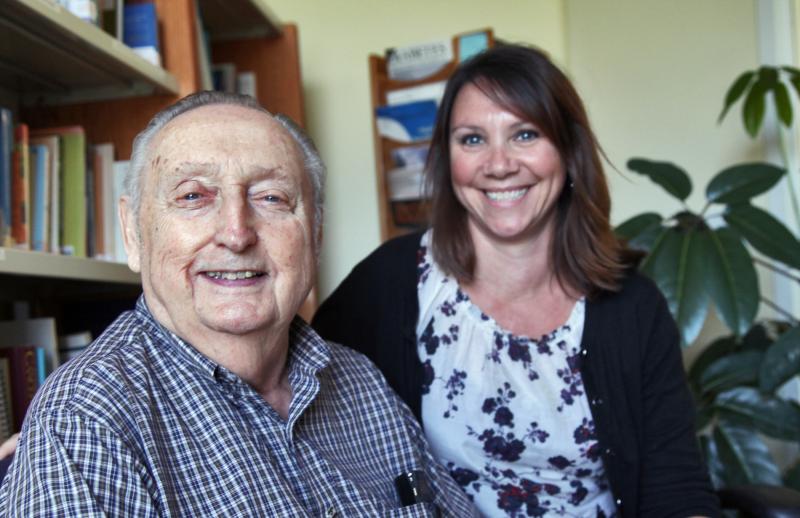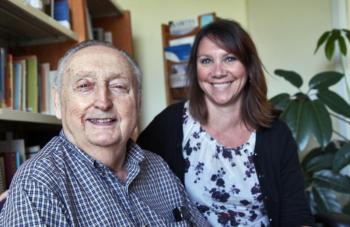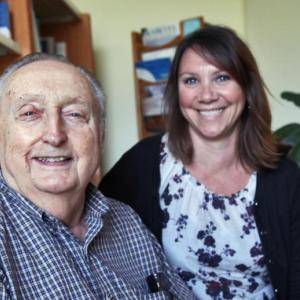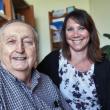Nurse helps patients transition home after hospital
The day after Roy Crawford returned home to East Boothbay from Maine Medical Center, he got a call from Bobbi Jo McFarland, RN.
McFarland, a Care Transitions Nurse at the Family Care Center, scheduled an appointment for Crawford with the Family Care Center’s Hospital-to-Home group, a multi-disciplinary team that includes a nurse, a pharmacist, a physician a social worker and a medical assistant. The team works with patients to resolve the gaps in care that can sometimes send a patient back to the hospital soon after their discharge.
She also made sure he understood how to take his medications and she arranged for help with meals through Meals on Wheels. But as important as any of that, was McFarland’s positive attitude and warmth during a difficult time, said Crawford.
“I thought she was an angel,” said Crawford. “She gave me hope, number one, that ‘Hey you are going to get better’ and I caught that bug. She helped me get a new lease when things looked pretty grim.”
A nurse who formerly worked in the skilled unit at St. Andrews Hospital, McFarland’s job is one of several new positions created by Lincoln County Healthcare, the parent company of Miles Memorial and St. Andrews Hospital, to prevent the medical setbacks that can send patients to a hospital or rehabilitation facility.
By investing in new services that address medical problems at the earliest possible time, Lincoln County Healthcare hopes to help patients stay healthier and at the same time avoid costly medical bills.
As a Care Transitions Nurse, McFarland’s role is partly as a medical detective, searching through the patients’ medical records and medication lists to find any discrepancies or gaps in care. She also serves as a liaison between the patient and his or her primary care physician, making sure the patient is scheduled for follow-up appointments soon after they are discharged.
In one of the oldest communities in one of oldest states in the nation, it is an approach that is already paying dividends for patients like Crawford.
For McFarland it is dream job.
As a nurse, she was often frustrated when patients boomeranged back to the hospital after discharge because they had too little support at home or didn’t understand their new medications.
Being able to help people recover following a stay at the hospital is especially meaningful to McFarland because she is caring for people in her own community, helping them make the transition to home even as she is part of a transition to a new type of care that is more focused on the health of the whole community.
But the best part of the job is reaching out to people who may be alone and unsure of what to do next and helping them gain the support and the confidence they need to get back on their feet.
“Usually by the end of the conversation they are grateful that you are checking up on them,” she said.
Event Date
Address
United States



























